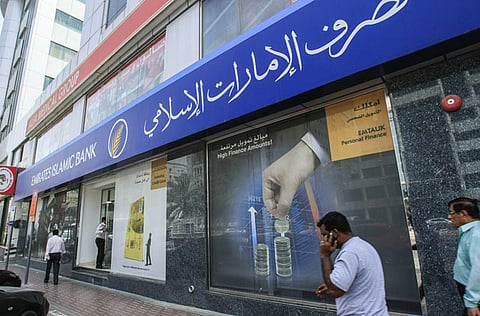UAE banks step up savings offerings
New products launched to entice savers but rates still low

With many consumers now increasingly aware of the need to save for the future, banks in the UAE are stepping up their game, tailoring savings schemes that promise positive returns.
Preeti Bhambri, managing director of MoneyCamel.com, a personal finance and comparison site, said that with economic instability and rising prices, there is a growing awareness among consumers of the need to set aside for the future, and banks are riding this trend.
“Post recession, consumers are more conscious of the risk they are taking on investments. Financial institutions have actually capitalised this sense of insecurity by introducing more schemes and running marketing campaigns around these,” Bhambri told Gulf News.
Bhambri, however, stressed that as the overall liquidity position among banks has improved, yields on deposits and saving accounts have fallen in the last year and a half. “Banks are still flushed with liquidity and interest rates on savings are expected to be as low as 1 per cent or lesser in the near future,” she said.
Emirates Islamic Bank (EIB) has recently announced it would launch a series of savings products that would enable customers to focus on future financial planning. The first product to be unveiled is the three-year Special Ramadan Deposit, a Wakala product that is open to everyone and promises a profit rate of 2.5775 per cent.
However, the projected return is not fixed and is good for three years, although it will be shared with investors every Ramadan starting from 2014. “This is the expected profit rate for the three-year Wakala investment. Under Islamic banking, we cannot give a fixed rate,” said Faisal Aqil, deputy CEO of EIB.
Anyone interested can join until the end of the holy month by depositing a minimum of Dh100,000 and up to Dh3 million and keep it for three years. The bank said the savings scheme will enable customers to meet their financial needs during Ramadan. “Planning and budgeting are keys to ensuring future financial stability,” noted Aqil.
HSBC and Zurich have also announced their new wealth product offering called “SavingsPlus”, which seeks to meet medium to long-term savings needs of Middle East customers. The product also offers insurance benefits and flexible contributions.
The bank said the product is well suited for those looking to save for their children’s education or their own retirement. Customers who sign up for the savings scheme will have the flexibility to adapt their plan according to their changing life circumstances. They can either increase or decrease their contribution, or even stop making contributions without incurring exit penalties.
Savers may also opt to deposit an amount on a monthly, quarterly, half-yearly or annual basis, but there will be a minimum amount of contribution, depending on the currency chosen.



